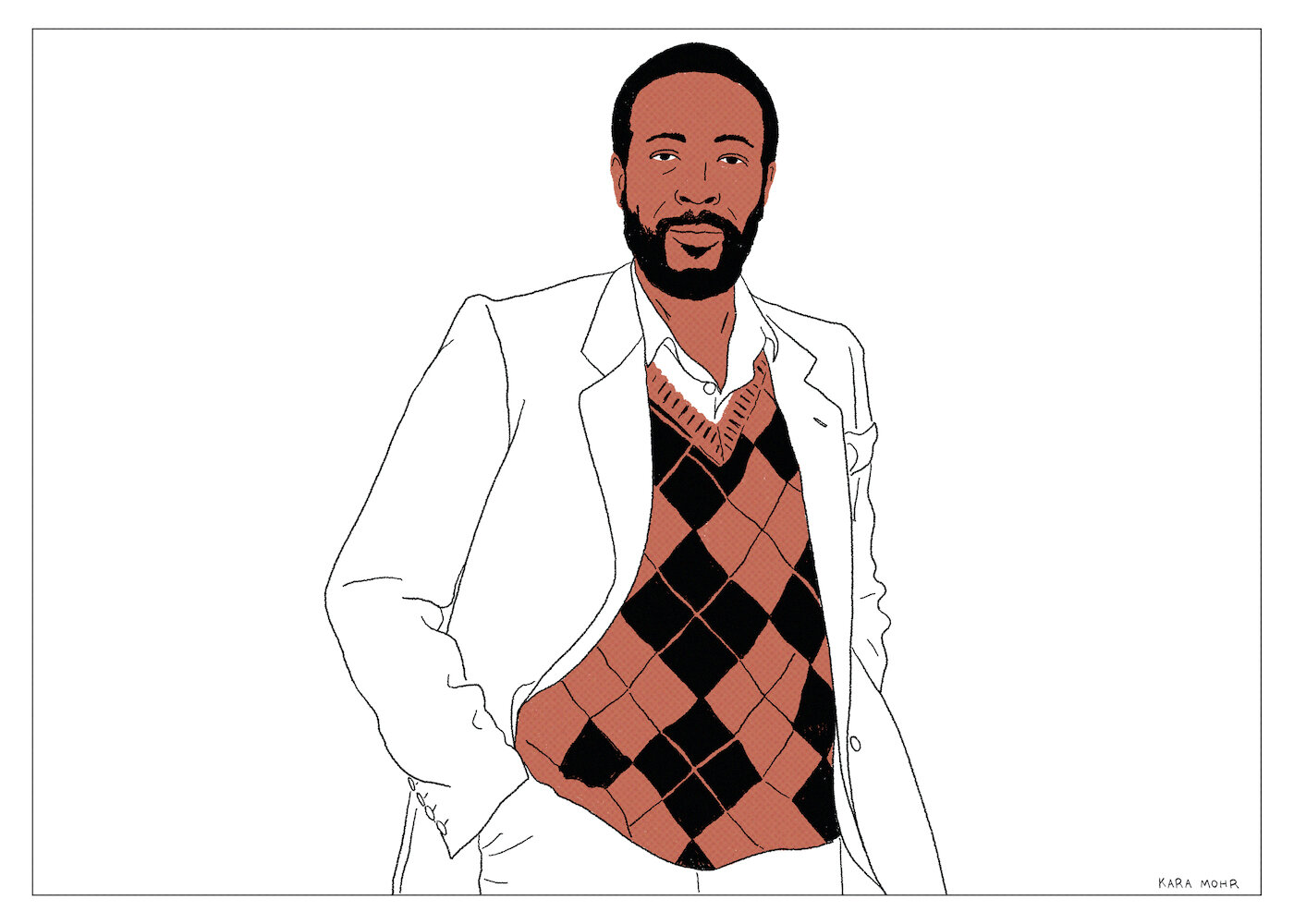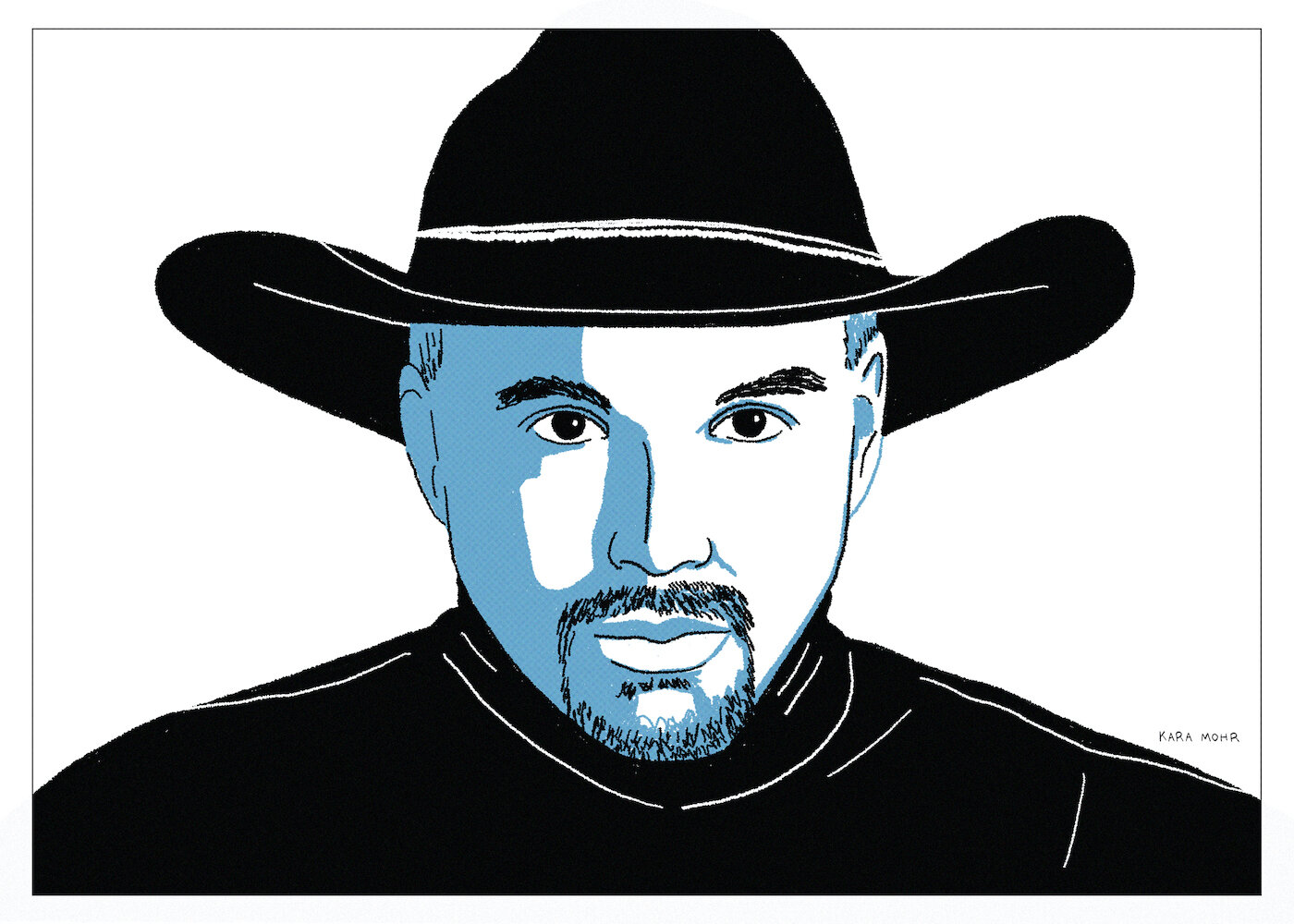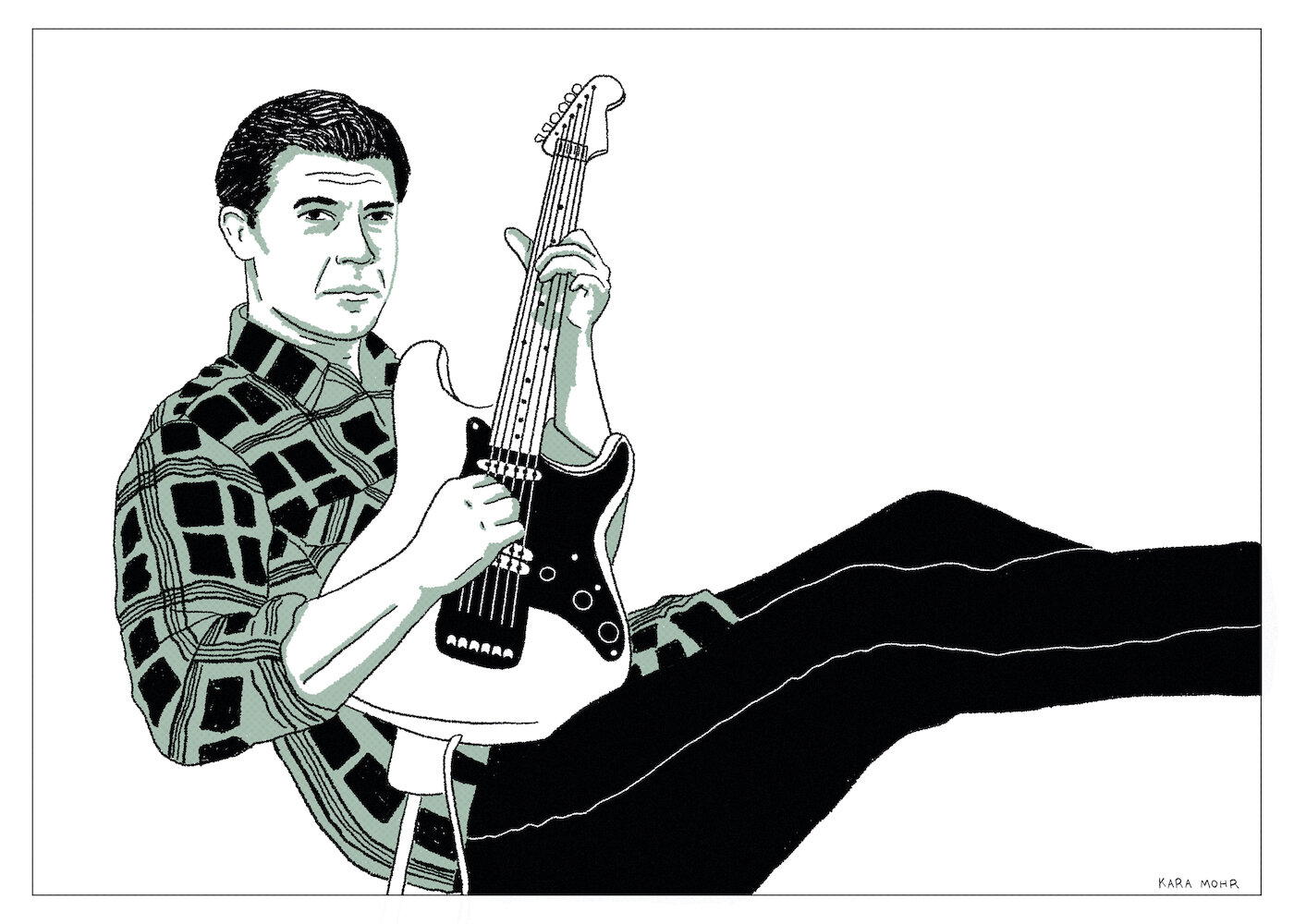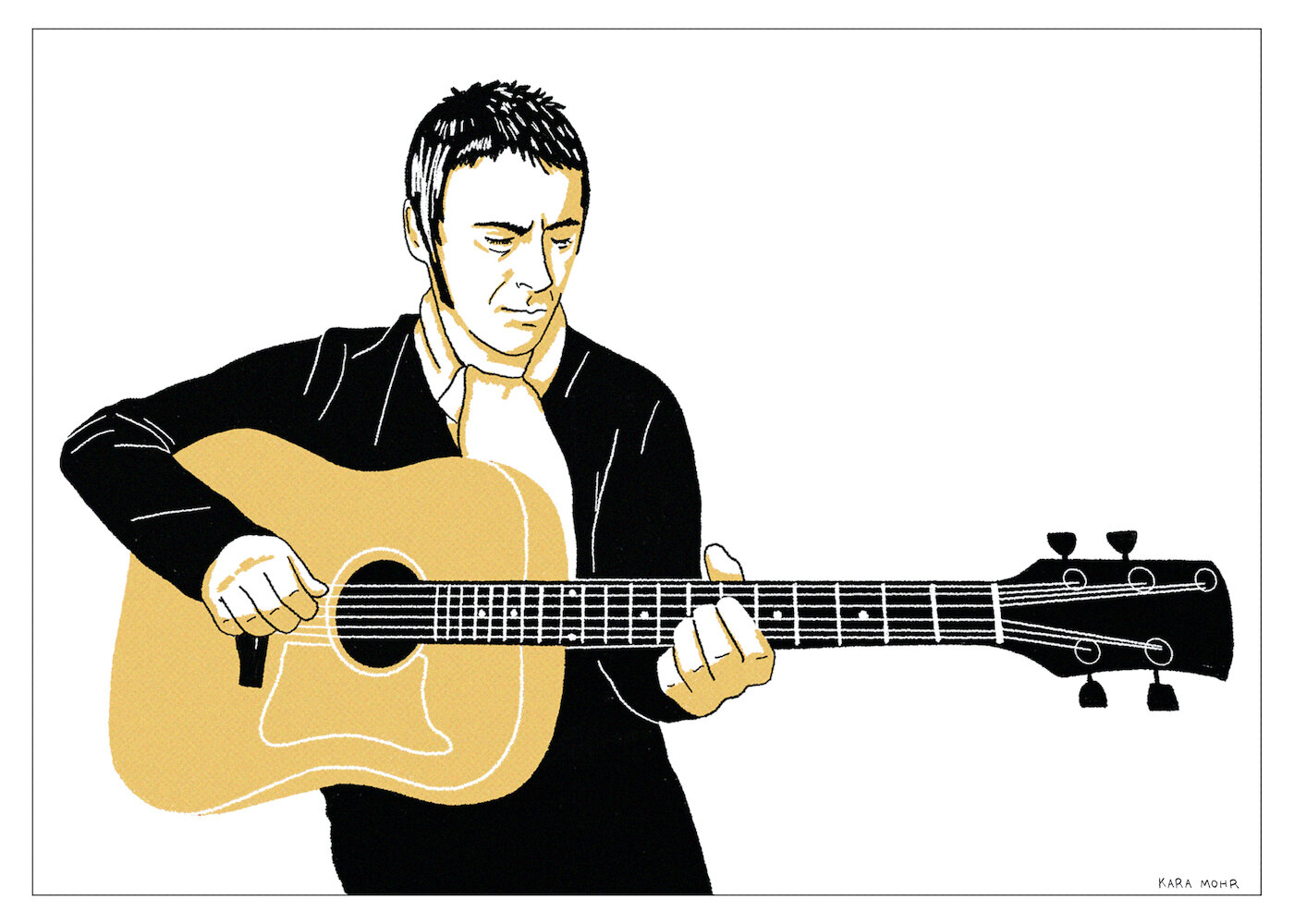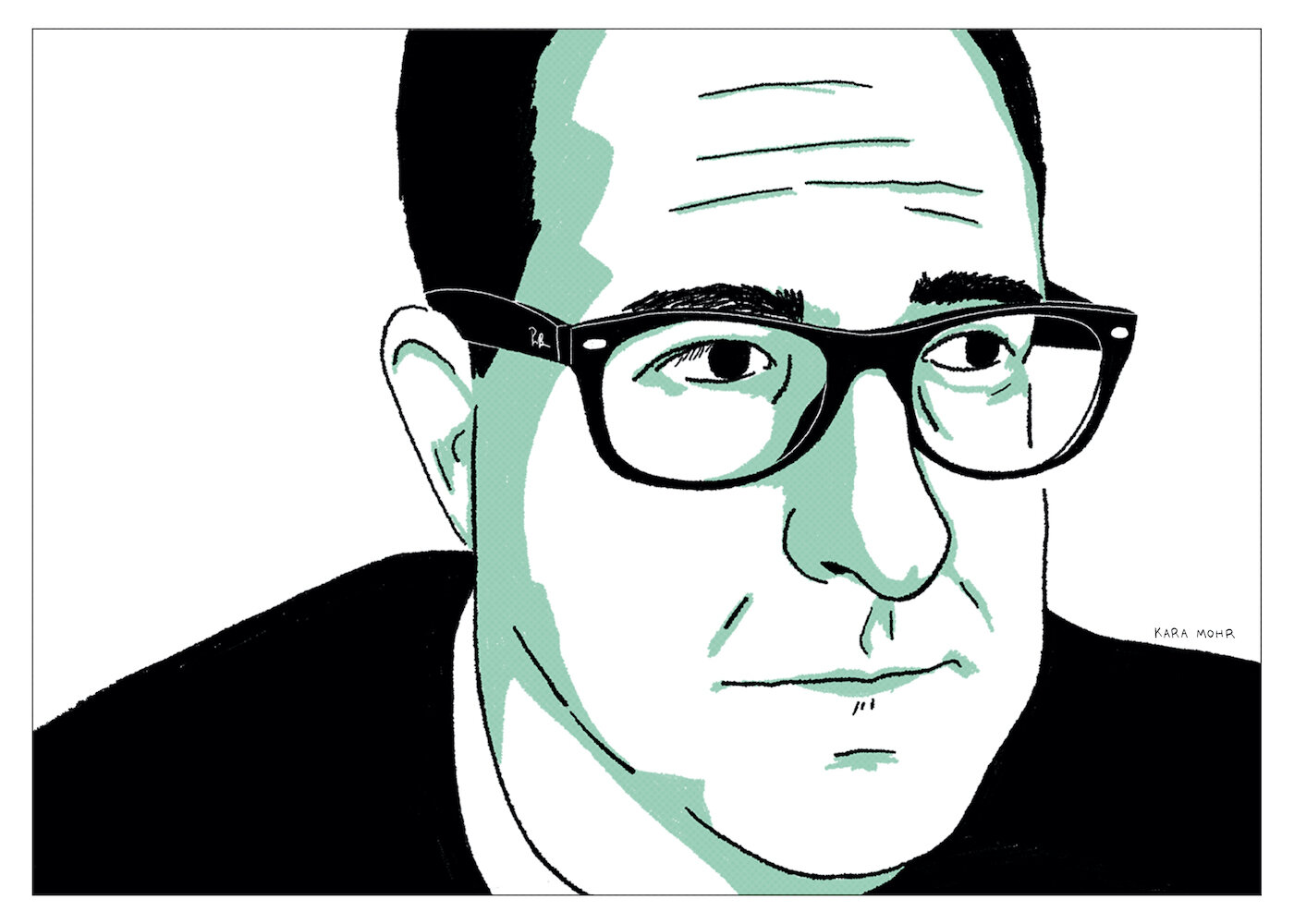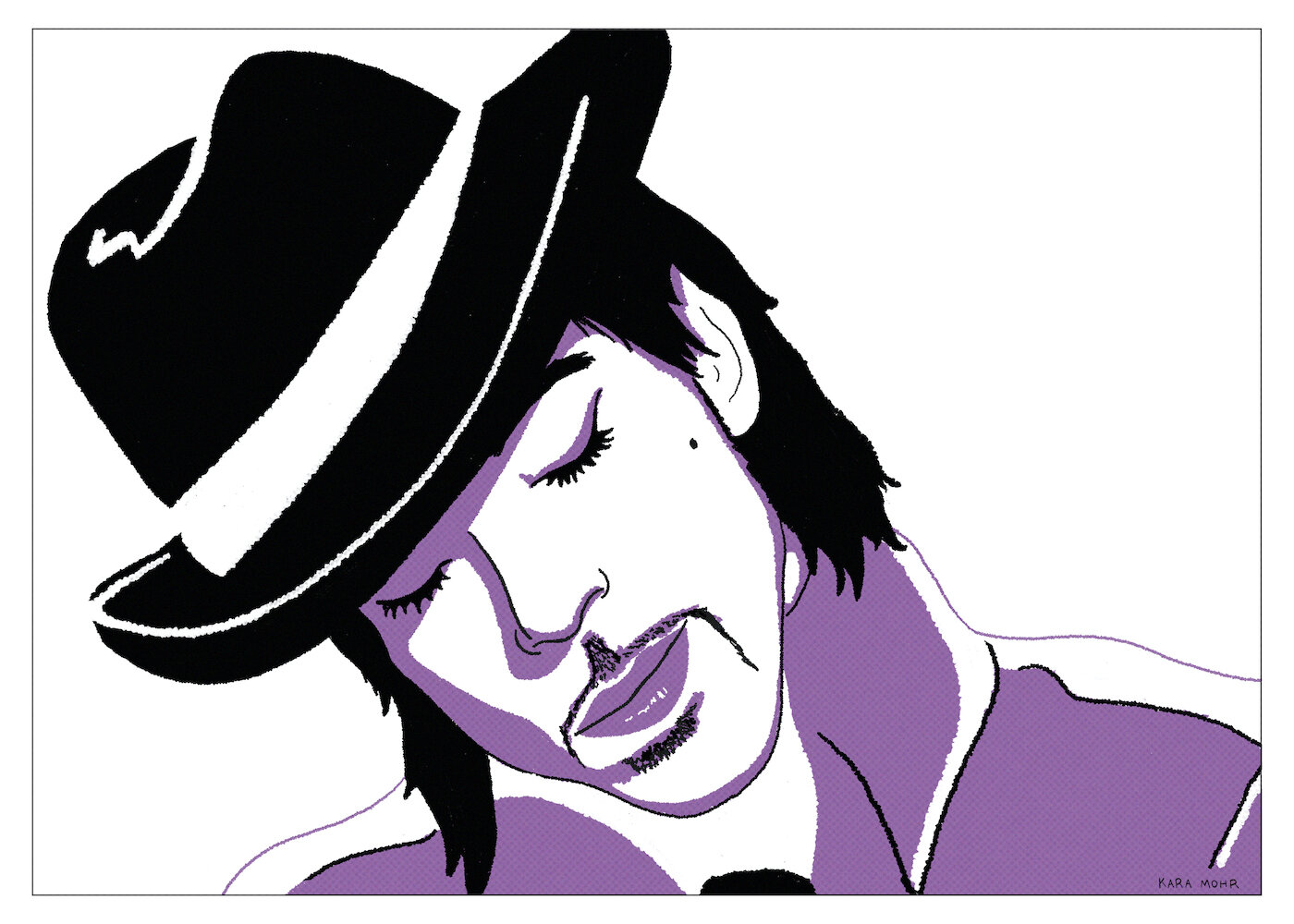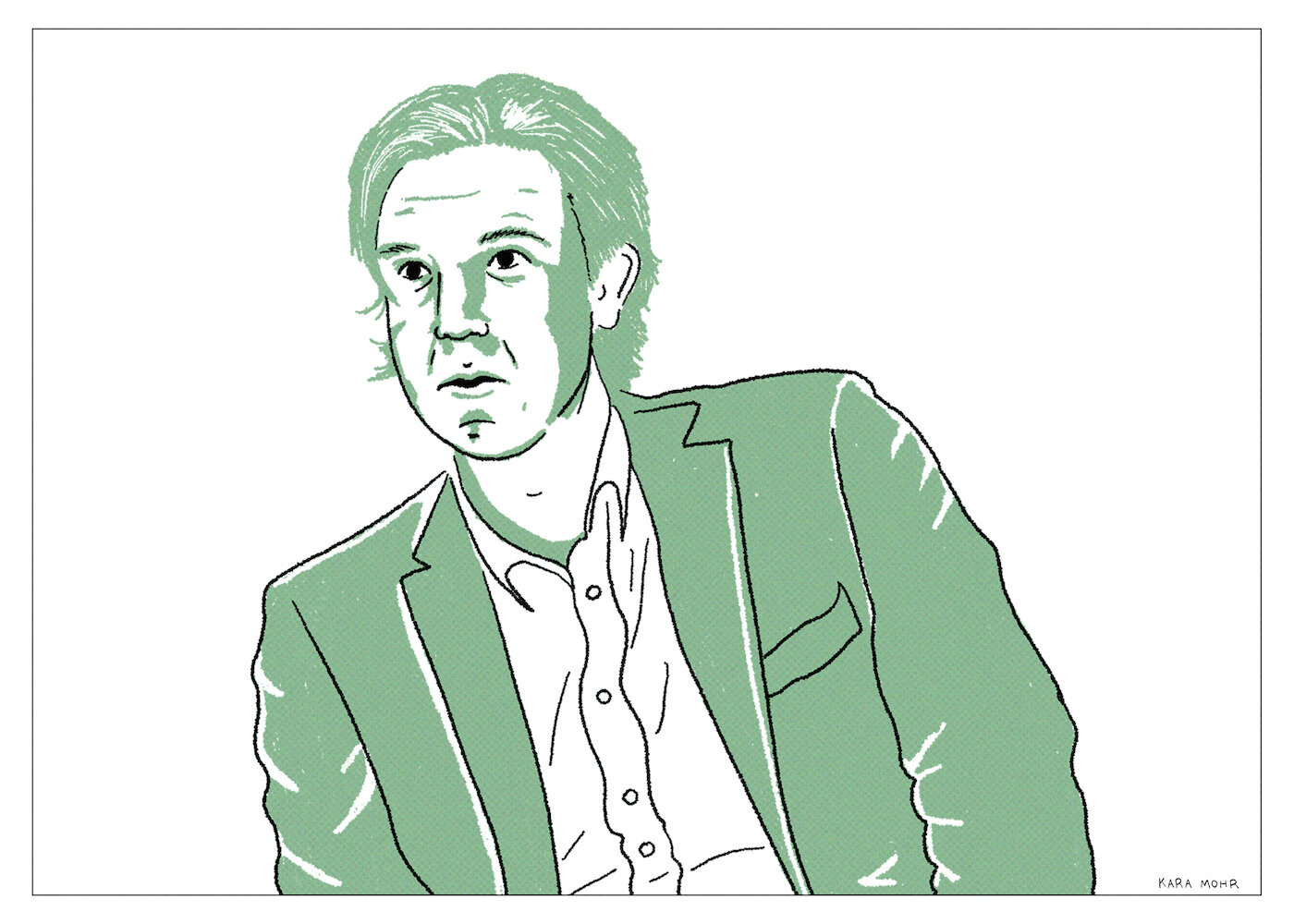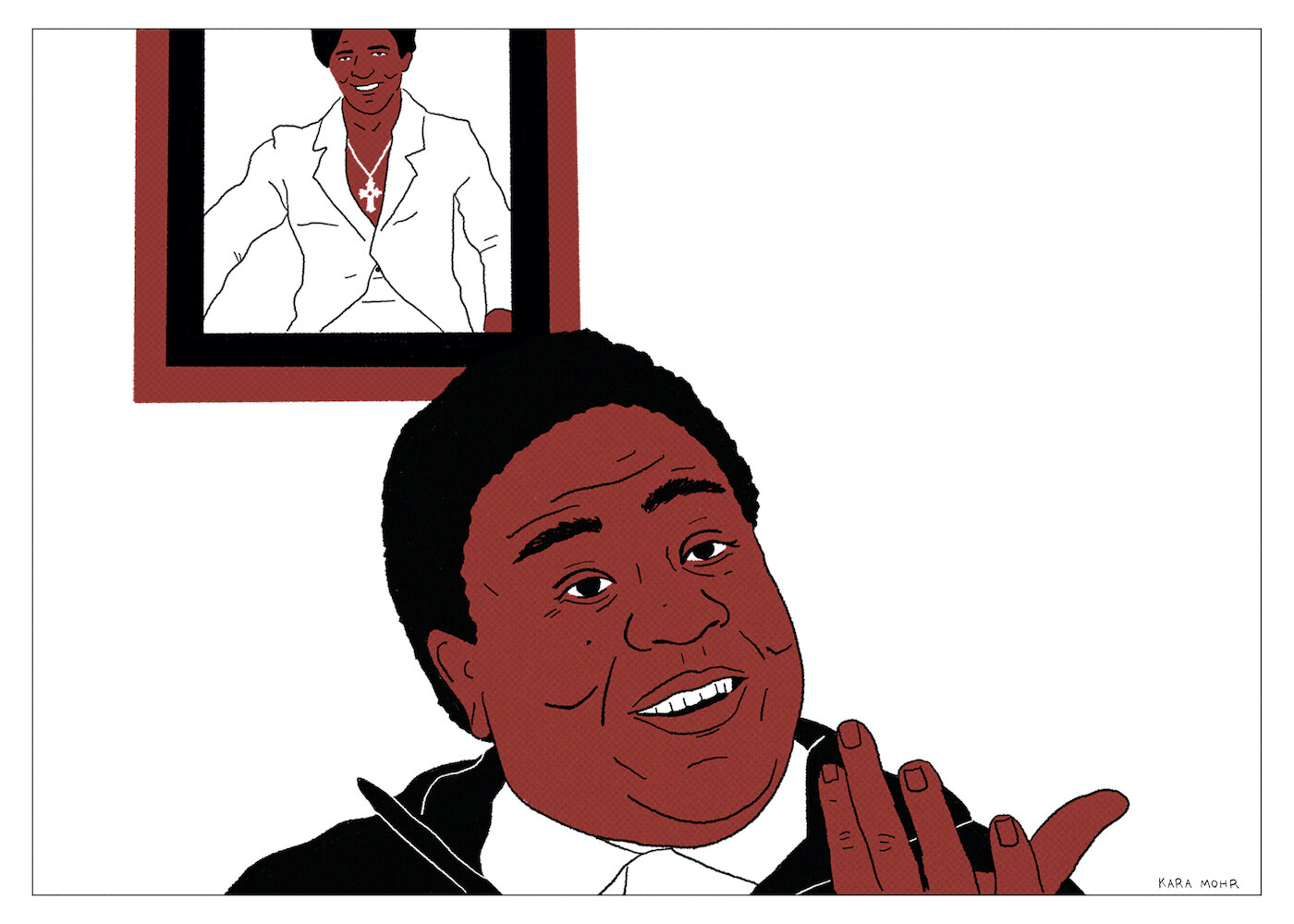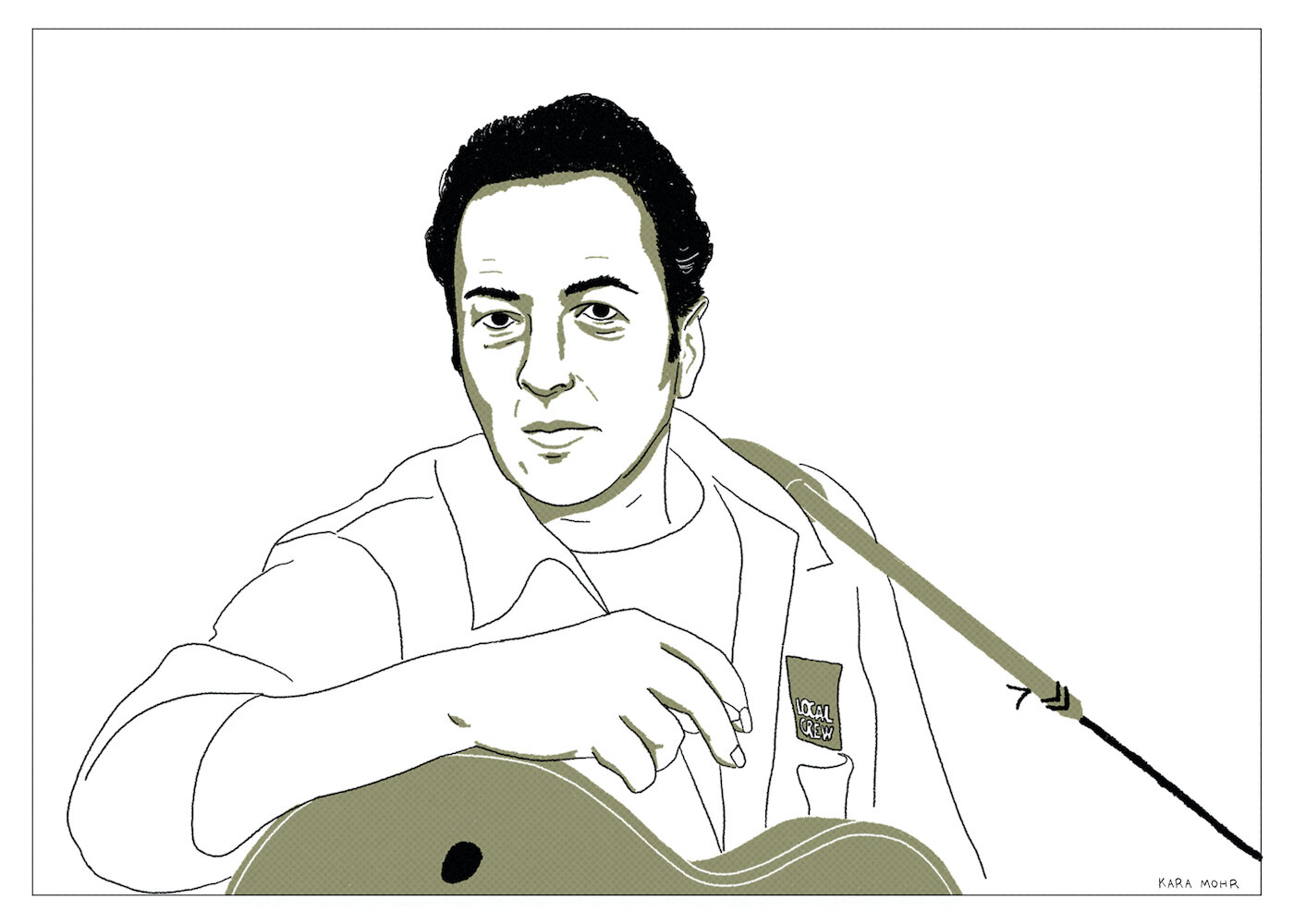Marvin Gaye “Midnight Love”
Was anyone ever as talented as this man? As perfect looking? As able to ooze sex, class and charm? Whatever political message he had, this guy always wanted to liberate your undies from you as part of the campaign. And, as the decades changed, he kept unbuttoning another button on his sexuality. “Sexual Healing” was the last button. Now he’s in your bed. Anyone even vaguely interest in sex loved it. Even ferns liked it and they reproduce with spores.
Steve Perry “For the Love of Strange Medicine”
Steve Perry was bruised after Journey. But, in 1994, at the age of forty five, and nearly a decade in hibernation, he managed to release “For The Love of Strange Medicine.” For anyone wondering if he was OK after all that time, the clues would be scant. The Voice was still there, but the Man was missing. Not only does Perry not write about the personal on “Strange Medicine,” he sounds mired in a state of arrested development.
Garth Brooks “Man Against Machine”
Garth Brooks is daringly, offensively not not likable. It’s an extraordinary accomplishment. If it is all a facade -- the humility, the charm, the open mind, the family values, the charity -- then it is the greatest long con in the history of the world. “Man Against Machine,” from 2014, was his first album in nearly thirteen years. It was a monumental event. And if Garth Brooks’ retirement plan was to spend over a decade crafting an album that quite literally every single American human could project themselves into, he nailed it.
Robbie Robertson “Robbie Robertson”
Having a weak singing voice is a problem. In karaoke it can be tolerated with alcohol. But as a recording artist, you have a situation. There are many imperfect voices out there —Tom Waits, Bob Dylan, Kris Kristofferson. But they offer something in return that the shiny voices lack: character and authenticity. Robertson’s voice has none of those things. It is strained and airy at its comfortable register. And when it drops down for something of weight, it sounds like Cookie Monster.
Paul Weller “Heliocentric”
In the 80s, people would often say that Bruce Springsteen was not a massive star outside of the US. Paul Weller is a fair English corollary for The Boss. Weller fronted two massive English bands, The Jam and The Style Council. He played to massive crowds on his home turf. On the other hand, there are many cities in America where Paul Weller might not sell out a large room. Plenty of Americans know of The Jam (“they had that song in Billy Elliot, right?”). But only the true American Anglophile are fluent in Weller’s exemplary solo career.
Lionel Richie “Louder Than Words”
Featuring sixty four musicians and thirty five producers, Lionel Richie’s “Louder Than Words” took a decade to make. What finally arrived was a meticulously average Contemporary R&B album from a well above average singer. It was an elaborate costume that Richie seemed compelled to uncomfortably try on. It didn’t fit. But, alas, he sounded patiently pleasant as ever, he avoided the pressure to rap and there’s no autotune.
Neil Young “Trans”
As “Trans” boots up “Computer Age,” you have one of the great musical WTF moments of popular music. But once you adjust to the idea this is all going to sound like “Tron” looks, it can be pretty fun. The opener swings a bit more than some of the other robo-farting to come. In fact, it sounds like a theme song for the best cyber-cop on the force. It has what’s missing from most of the experiments that follow: a groove.
Frank Sinatra “A Man Alone: The Words and Music of Rod McKuen”
It was 1969 and it was not an easy time to be a crooner. Sinatra wasn’t going to pick up a guitar and change his beat. Thrashing about for the answer, he made a big band recording of Simon and Garfunkel’s “Mrs Robinson” that sounds about as desperate to connect as you think. As part of that thrashing, Sinatra scanned the landscape for anyone else that resembled what he did that was still considered cool. It was then that Sinatra met Rod McKuen at a party.
Craig Finn “I Need a New War”
Craig Finn was always a writer first, singer next and, vaguely, finally a musician. But the guy is both smart and clever and he is evidently committed to learning. So, I had faith his music would get somewhere. “I Need a New War” mostly validates my faith. The songs are not uniformly compelling on their own, but it is a genuine master class in a certain middle-aged, poignant weariness. “I Need a New War” replaces the drunk, Brooklyn gusto of The Hold Steady with an Upstate sobriety and poignancy.
Prince “The Rainbow Children”
The title track song is a warning shot across your bow. It’s about as commercially inaccessible as you can get from a guy who made a hit for the Bangles. You want this album? This is not your momma’s Prince. Where did this all come from? What genre is this? Some of these songs will straddle the line between “Jazz-inspired” and “noodling,” but you can’t say this forty four year old was out of ideas.
Alex Chilton “A Man Called Destruction”
What. The. Fuck. Happened? After decades of searching for answers, I’m ready to admit it: we got it all wrong. Having revisited Alex Chilton’s 1995 solo “apex” “A Man Called Destruction,” it’s finally, sadly clear to me that all of the glimmers and all of the clues we imagined in his solo music were simply our Big Star projections. Alex Chilton was not a tortured genius. No. He was just a talented, depressed, beat up guy who never found that great gift that he may not have even had to begin with.
Tom Petty “Wildflowers”
A model middle aged album: leaner, cleaner, wiser, wearier. I feel like I’m driving around Gainsville in this album, and I leave town changed; more connected to summer nights, broken skylines, listening to the radio, something fading, stumbling into a bar I don’t belong in, finding a girl and escaping into a field, giggling, wondering later if I’m wasting it all.
David Crosby “Oh Yes I Can”
On his first solo album in almost twenty years, Crosby managed to sound quite vital on 1989s “Oh Yes I Can.” “Vital” as in “healthy,” rather than “essential.” There’s a big difference. His life story has been rich and compelling. He has been a cautionary tale and an inspirational voice. But, stripped of the counterculture and of his greatest collaborators, Croz ends up sounding like the guy playing on the small stage at a farmers market.
Paul Simon “Songs from The Capeman”
Was Paul Simon’s “Songs from The Capeman” a prescient vision of the coming of Lin Manuel Miranda? Was it the Doo-Wop Hamilton that no one could accept because it was written by a middle aged white guy? Or is it one of the great mid-career missteps? Spoiler alert: “The Capeman” is not really like “Hamilton” at all. It’s more like “West Side Story,” but with a long, boring reading section.
Bill Withers “‘Bout Love”
Bill Withers wrote concise songs about simple ideas, added uncomplicated melodies and let his band do their jobs. He simply never wasted a note. By 1978, though, Withers was almost already done with it all. He still had enough cache to make one final record on his own terms. “‘Bout Love” sounds like an artist carefully packing up his desk for an early retirement.
James Taylor “Never Die Young”
James Taylor is more opaque than Prince or Bob Dylan. Is he the genteel, humanist who invented Adult Contemporary music fifty years ago? Or is he an overly-sensitive, over-valued bar singer who succeeded by virtue of his good looks and birthright? By 1988s “Never Die Young,” Taylor had recently re-married and was still very much in the throes of a fledgling sobriety. It was a miracle he was alive, much less a viable recording artist. If ever there was a time reveal his true self, this was not it.
Randy Newman “Land of Dreams”
By the mid-80s, with his soundtrack work increasing, it began to sound like Randy Newman was losing focus — writing and composing for all of the disparate ideas piling up on his mental desk. Some were his own. Some were others’. Some were political. Some were literary. All had characters. Most sounded “personal” but none sounded “autobiographical.” 1988s “Land of Dreams,” like all of his previous albums, is a record about People in America. Unlike his previous albums, however, one of the People on “Land of Dreams” seems to be Randy Newman himself.
Hamilton Leithauser “The Loves of Your Life”
“The Rat” is the actual sound of Lower Manhattan in the early 21st century. Not The Strokes. That’s the cleaned up version. “The Rat,” by The Walkmen, is the secret, frustrated, smart and just a little dangerous New York. And for more than a decade, you got the feeling that the singer in that band was not content just making great music. No. Each time out, Hamilton Leithauser was going for “Like a Rolling Stone.” But, how do you balance that soaring ambition with middle-age, marriage and fatherhood? The answer lies where we find Hamilton Leithauser in 2020 on “The Loves of Your Life.”
Al Green “Lay It Down”
I have found it to be exceedingly difficult to write about Al Green, the singer, without wading into Al Green, the man. Who am I to write about Al Green, a man I have never met, when so much of his popular framing is steeped in racism? Is this essay unnecessary and frivolous? Probably. Is it poorly timed? No doubt. Will I make an earnest go at it anyway? Yes. Because I really want to talk about AI Green’s fairly spectacular 2008 collaboration with ?uestlove, “Lay it Down.” So, here goes.
Joe Strummer and the Mescaleros “Global a Go-Go”
In 1982, he was the man at the front of “The Most Important Band In The World.” To see him then is to have seen someone intent on everything and capable of anything. But, just two years after that, The Clash would release a genuinely terrible final album. By his own account, Joe Strummer simply lost the ability to make The Most Important Music In The World. He kept busy. But, many wondered if their hero had lost the ability to be “Joe Strummer.”

